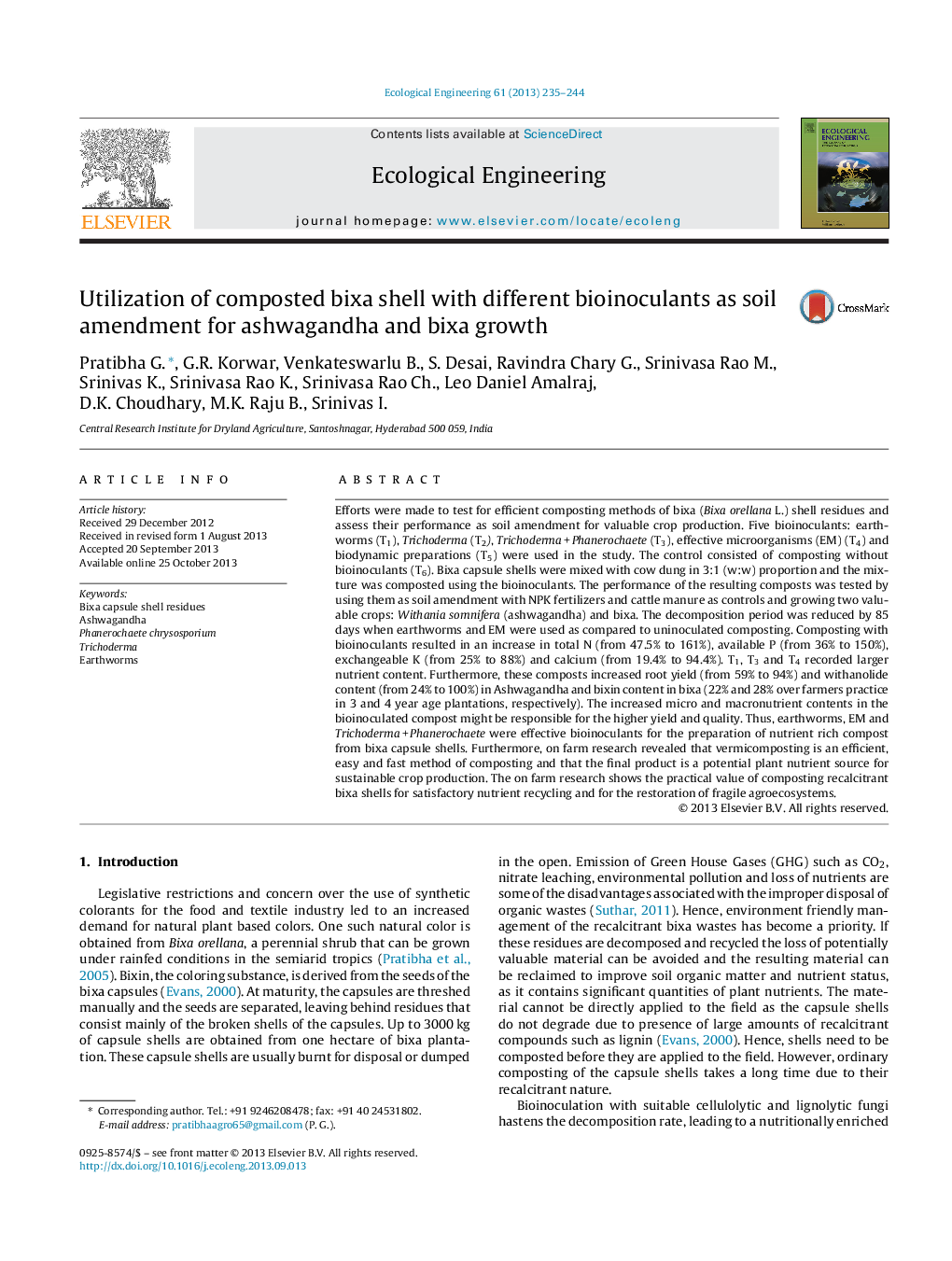| Article ID | Journal | Published Year | Pages | File Type |
|---|---|---|---|---|
| 4389484 | Ecological Engineering | 2013 | 10 Pages |
•Bioinoculants efficiency on recalcitrant crop residues decomposition was attempted.•Compost efficacy was evaluated on ashwagandha and bixa both in on station and on farm.•Earthworms are cost effective bio inoculants for recycling of recalcitrant crop residues.•Vermicompost of bixa shell residues is a valuable source of nutrient.•Bio inoculant compost enhances crop productivity and quality of bixa and ashwagandha.
Efforts were made to test for efficient composting methods of bixa (Bixa orellana L.) shell residues and assess their performance as soil amendment for valuable crop production. Five bioinoculants: earthworms (T1), Trichoderma (T2), Trichoderma + Phanerochaete (T3), effective microorganisms (EM) (T4) and biodynamic preparations (T5) were used in the study. The control consisted of composting without bioinoculants (T6). Bixa capsule shells were mixed with cow dung in 3:1 (w:w) proportion and the mixture was composted using the bioinoculants. The performance of the resulting composts was tested by using them as soil amendment with NPK fertilizers and cattle manure as controls and growing two valuable crops: Withania somnifera (ashwagandha) and bixa. The decomposition period was reduced by 85 days when earthworms and EM were used as compared to uninoculated composting. Composting with bioinoculants resulted in an increase in total N (from 47.5% to 161%), available P (from 36% to 150%), exchangeable K (from 25% to 88%) and calcium (from 19.4% to 94.4%). T1, T3 and T4 recorded larger nutrient content. Furthermore, these composts increased root yield (from 59% to 94%) and withanolide content (from 24% to 100%) in Ashwagandha and bixin content in bixa (22% and 28% over farmers practice in 3 and 4 year age plantations, respectively). The increased micro and macronutrient contents in the bioinoculated compost might be responsible for the higher yield and quality. Thus, earthworms, EM and Trichoderma + Phanerochaete were effective bioinoculants for the preparation of nutrient rich compost from bixa capsule shells. Furthermore, on farm research revealed that vermicomposting is an efficient, easy and fast method of composting and that the final product is a potential plant nutrient source for sustainable crop production. The on farm research shows the practical value of composting recalcitrant bixa shells for satisfactory nutrient recycling and for the restoration of fragile agroecosystems.
